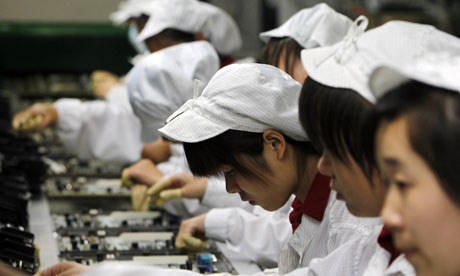Unilever has set up a plan wherein the carbon, water and waste impact of its products should be halved over a decade, including the impact caused by its suppliers and consumers. Through innovation and efficiency in production they will ameliorate their products. The plan doesn’t only consist of environmental targets, but also the improvement of social conditions. They will work with fairtrade organizations like Oxfam, which benefits are already explained in Karen’s latest blog. The company will also do an effort to improve the state of health by changing the hygiene habits and purifying the drinking water in the developing countries. (The Guardian)
I believe Unilever is a role model in business. It tries to operate by the basic principles of CSR-model. Even though they might only want to obtain competitive advantage, it will lead to nothing but improvement both for the environment and the stakeholders. Contrary to Apple, Unilever does try to stick to its principles and cuts costs by being more efficient and not by exploiting the poor countries.
Evelyn Stalpaert






